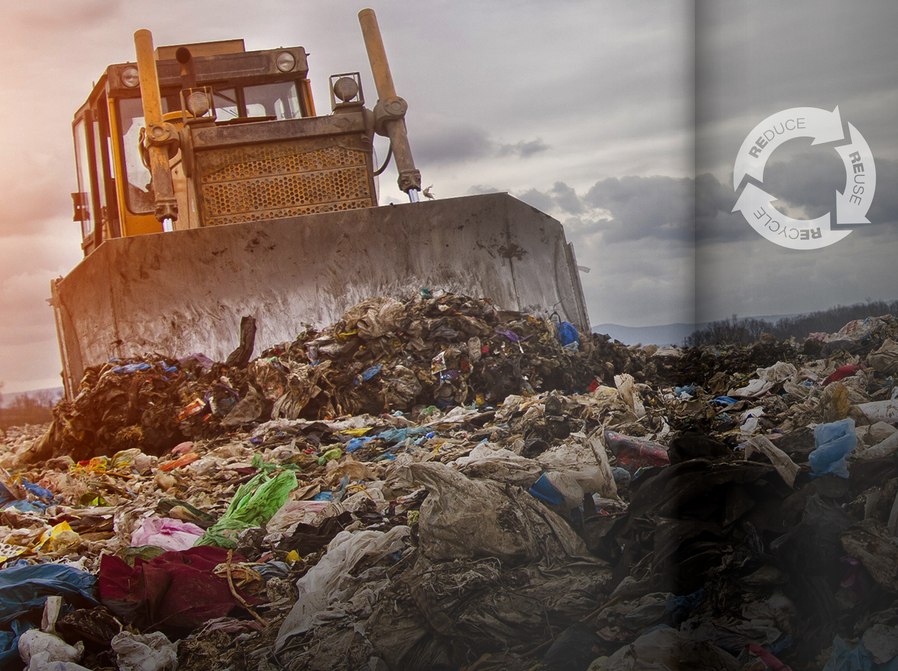Micro-Plastic Warrant Action! Don’t Contribute to the Problem-Be Apart of the Sustainable Solution With These Biodegradable Products.
Toxic microplastics are overtaking our planet and bodies as large volumes of plastic enter the environment every year resulting as persistent mismanaged waste.
Plastic pollution is one of the most pressing and critical environmental issues facing the country. It is an environmental, wildlife, climate, human health and social justice issue that impact everything including the water we drink and the animals we consume. But don't fret it - new product innovations can reduce landfill pollution and eliminate plastic from our supply chains!

WHAT'S PLASTIC POLLUTION
Plastic pollution is the accumulation of plastic objects and particles in the Earth's environment that adversely affects humans, wildlife and their habitat. Plastic products include every day, single-use items such as plastic bottles, disposable razors, plastic handle toothbrushes, pill bottles, food wrappings, drinking cups, deli containers, food containers, plastic straws, shopping bags, take-out bags, resealable bags, desiccant packets and micro-beads used in cosmetics within health and beauty.
OXO-DEGRADABLE
The chemical structure of most plastic renders it resistant to many natural processes of degradation referred to as oxo-degradable. Oxo-degradable plastic products do not biodegrade. Instead it slowly breaks down into smaller and smaller pieces and eventually into fine toxic micro-plastic resulting in particles smaller than five millimeters in size. These fragments remain in the environment where it eventually makes its way into the food chain.
RESEARCH ON HUMANS
New research has found micro-plastic in human blood and it confirms what many researchers have hypothesized for some time: When humans ingest or inhale microplastics, the particles don’t merely pass through the body but rather remain there.
That’s especially significant given just how much humans are likely exposed to micro-plastics by accidentally inhaling or ingesting them. In fact, one 2019 analysis estimated that people take in roughly a credit card’s worth of micro-plastic every week but until now, there’s been limited research into whether the particles remain in the body where they could potentially cause harm to internal organs or the endocrine system.
Last winter, a study was conducted by Italian researchers who examined six placentas and found micro-plastic in four of them (Greenwire, Dec. 22, 2021). Another pilot study last year looked at feces from six infants and 10 adults and found nanograms of polyethylene terephthalate, a type of micro-plastic, in both. Micro-plastics we re 10 times higher in the baby poop than in the adult feces. Let us stop here but we encourage you to do more research but understand that micro-plastic pollution is a serious problem that can't be taken lightly.
re 10 times higher in the baby poop than in the adult feces. Let us stop here but we encourage you to do more research but understand that micro-plastic pollution is a serious problem that can't be taken lightly.
ANIMALS
Some researchers suggest that by 2050, there could be more plastic than fish in the oceans by total weight. Living organisms, particularly marine animals, can be harmed either by ingestion of plastic waste, or through exposure to chemicals within plastics that interfere with their physiology and lastly, from the mechanical effects of plastic objects such as entanglement or suffocation.
When plastic breaks down into microplastics it becomes a different kind of threat to wildlife. Smaller fish, or those species low on the food chain like plankton and oysters, consume microplastics when filtering water. Microplastics, and the toxins they contain, get passed upwards through the food chain, eventually getting ingested by large marine animals and by humans.
Reduce Landfill Pollution & Eliminate Plastic From Supply Chains with Biodegradable & Eco-Friendly Products Today!
Environmental concern has led to new efforts and innovations in product development concentrated on developing sustainable alternatives. For example hand protection specialists such as SHOWA® and SW® Sustainable Solutions have introduced additives into their single-use nitrile glove formulas that enable gloves to breakdown into healthy, nutrient rich soil within years, not centuries.
Companies such as Portwest®, OccuNomix, PIP® (Protective Industrial Products), Traffi®, Majestic® and Wells Lamont are depleting stockpiles of P.E.T. water bottles and converting them into bio-based recycled yarns used to make work gloves, cut-resistant sleeve protectors and even ANSI complaint high-visibility work wear.
Plant based resins such as bagasse (sugarcane) and Polyactic Acid (PLA) (corn) is transforming single-use food catering and to-go food service with compostable foodware designed to break down within 12 weeks leaving behind healthy, nutrient rich soil! Other innovations such as bamboo is being used to knit work gloves and it’s replacing plastic handle toothbrushes in an attempt to reduce landfill and plastic pollution.
If you do the math, you’ll realize those pennies you save purchasing cheap plastic alternatives really doesn’t equate to big money, but it is equating to massive damage to our Planet and consumers know this. Purchasing Eco-friendly supplies strengthens your brand and shows you care. It is also appreciated and expected in many circles by consumers.